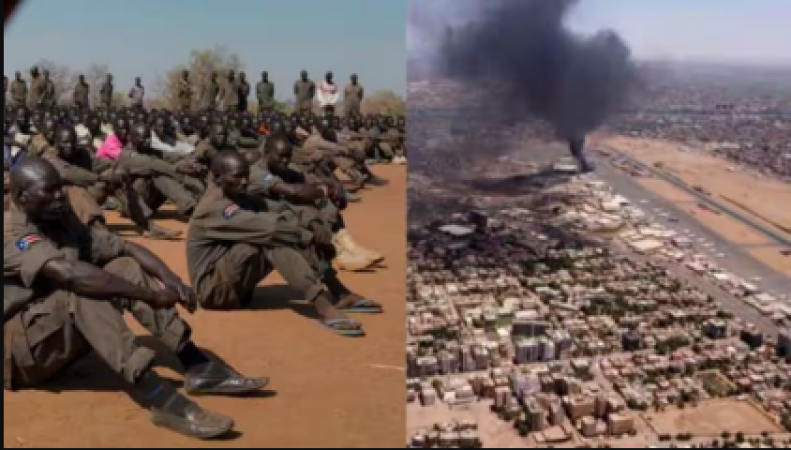
Pairs: The infrastructure of the country's water and electricity systems has been severely damaged, and the health sector has been hit particularly hard as fighting rages around the capital of Sudan.
The nation as a whole is experiencing a drug shortage, and the majority of hospitals in the capital are no longer operating. The International Committee of the Red Cross, which has operated in the nation since 1978, has relocated and reorganised its field teams, who are having difficulty carrying out their duties under "normal" circumstances.
It is not possible to release and distribute an eight-ton shipment of humanitarian relief supplies that arrived in Port Sudan on Sunday from Amman, Jordan. The shipment includes medical equipment to assist regional hospitals and Sudanese Red Crescent volunteers treat people hurt during the fighting.
Also Read: Cult leader from Kenya is in court for a forest massacre
We are still unable to carry on the operation and distribute these resources to the towns and areas that are most impacted. Since the security situation in the region is still unstable, we are unable to provide information about the transfer of these materials at this time, said Imene Trabelsi, an ICRC spokeswoman for the Near and Middle East, to Arab News in French.
Additionally, there has been a communication breakdown between field teams, regional offices, and headquarters.
"The current state of affairs is critical. Hospitals and healthcare facilities have already depleted their supplies as the fighting goes on. According to Trabelsi, the security situation prevents doctors and nurses from entering hospitals or their facilities.
Also Read: 6.3-magnitude earthquake rattles central Japan: weather service
The people who require care do not currently have access to medical professionals. Not to mention the dearth of water and electricity, which makes running hospitals all but impossible.
"We have been able to support the Sudanese Red Crescent, our main partner in Sudan, in the most affected areas. We have been delivering war injury kits from Darfuri hospitals over the past two weeks. We have made several attempts to deliver these kits to hospitals. The situation is dire and there is a great need, but we haven't always been able to respond because of the security situation, which prevents a proper humanitarian operation.
Only 16 percent of Khartoum's health infrastructure, according to the World Health Organization's estimates, is still in use, she said.
Due to the near paralysis of the health sector, the ICRC is pleading "for a ceasefire on humanitarian grounds to be fully respected and for the various parties to the conflict to assume their responsibilities with regard to security guarantees for humanitarians, in the interests of the population."
It is essential for humanitarian actors like the Red Cross to be able to move as soon as possible, according to Trabelsi. We need the parties to the conflict to be aware of their legal responsibilities in this type of circumstance in order for us to advance and support the sector.
These responsibilities include taking all reasonable precautions to protect civilian lives, as well as protecting infrastructure necessary for both the humanitarian effort and the survival of the civilian population. They also include providing the necessary security guarantees so that humanitarian actors can carry out their work in a safe manner.
"We are not discussing a choice; rather, we are discussing a legal requirement under international humanitarian law, which is applicable in conflict zones, as it is in the case of Sudan."